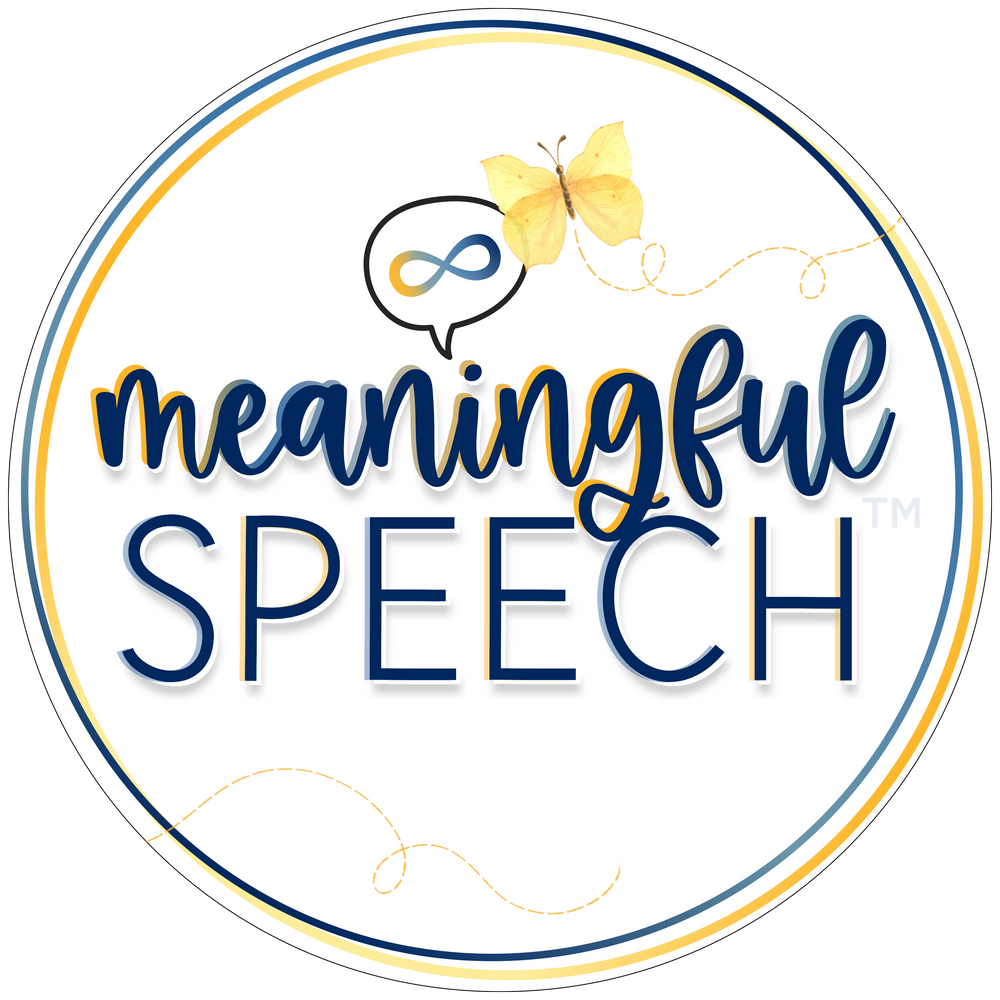My child is using gestalts with swear words: What can I do?
Apr 16, 2025
If you’ve found yourself surprised (or even a little embarrassed) by your child's gestalts that include swear words, you’re not alone and there’s a reason it’s happening! When it comes to gestalt language development, what may seem shocking at first glance is often rooted in an emotional experience, memory, and communication intent. Let’s unpack the “why” and what you can do to support them.
Why is my child using gestalts with swear words?
Most gestalt language processors have incredibly strong episodic memories. This means they tune in to emotional experiences and those moments “stick” in their memory because of how dramatic, intense, or meaningful they felt.
Swear words are often used in high-emotion situations. Whether it’s something they overheard on TV, in public, or at home, it’s likely the context was dramatic or emotionally heightened. That emotion makes the language stand out and is why they pick it up as a gestalt.
So when your child uses a gestalt that includes a swear word, chances are that they’re not trying to be inappropriate. They’re repeating language that felt powerful or emotionally relevant to them. It's their way of communicating something they felt, even if the language feels out of place to us.
What can I do to support them?
Here’s the key: we can’t “erase” gestalts, even ones that include language we don’t want them to repeat. But we can support them in finding new gestalts that are just as emotional, meaningful and more appropriate for everyday situations.
Here’s how:
-
Focus on the meaning behind the gestalt. What was your child trying to communicate when they used that gestalt? Frustration? Excitement? Surprise?
-
Model new potential gestalts that communicate the same feeling or intent. These new gestalts need to be emotionally rich—use varying intonation, facial expressions, and excitement when modeling them.
-
Know that you might not always get it "right". Over time, new gestalts may take the place of older ones, especially when they are tied to similar emotional contexts. However, sometimes the language me model isn't quite "right" or meaningful to the child and if that's the case they will not pick it up as a gestalt. If a child isn't picking up a potential gestalt model that you've been modeling for quite some time, it's time to reconsider the language you're modeling.
For example, if your child uses a gestalt with a swear word when something goes wrong, try modeling a dramatic potential gestalt like:
- “Oh no! That’s not good!”
- “That surprised me!”
- “I'm so angry!”
If the potential gestalt is as exciting, intonationally defined, meaningful and communicates what they want to communicate, it may just stick!
Want to learn more in-depth information about how to support gestalt language processors?
- There are many free podcasts, webinars and articles to get you started. A comprehensive list of resources can also be found on our website. We just released a new FREE masterclass on echolalia and child-led therapy that is perfect for anyone starting their learning journey or on the fence about purchasing our courses!
- Consider taking the Meaningful Speech course to learn more about how your child or client processes language, how you can help support them from echolalia to self-generated (original flexible) language, child-led therapy, and neurodiversity-affirming practices. Looking for something shorter? We have a 1-hour introductory course perfect for extended family, daycare or school staff.
- Consider taking our AAC + Gestalt Language Processing course. It will teach you how to identify, evaluate and support gestalt language processors who use AAC or who you think might benefit from AAC.
- Look for a speech-language pathologist (SLP) who "gets it" and can help you in supporting your child's language development. Check out our registry for SLPs who understand gestalt language processing and child-led therapy.
- Are you a school-based or private practice clinician looking for intake forms for new clients/students or creative visual reminder posters for your space? Check out the Meaningful Speech Marketplace.
- Want to learn more about starting a niche private practice? Watch our 1-hour webinar on starting a niche private practice hosted by Alex Zachos and Jess Teixeira from the Meaningful Speech team HERE.
